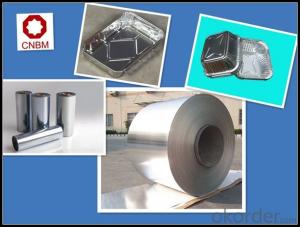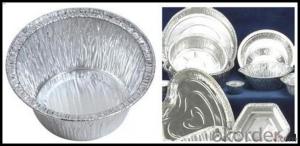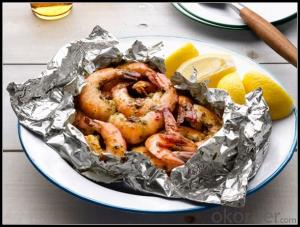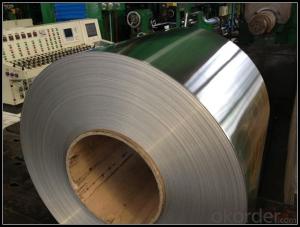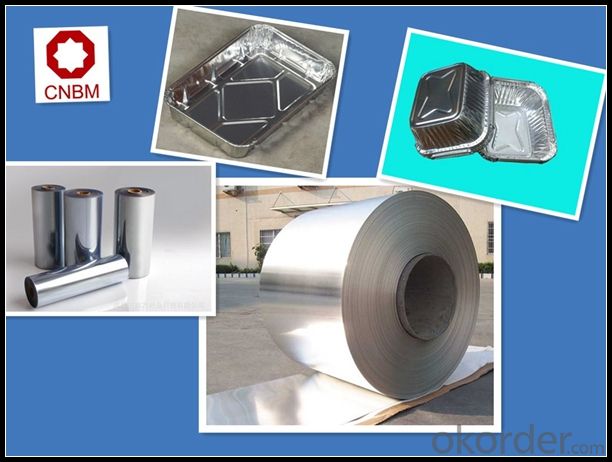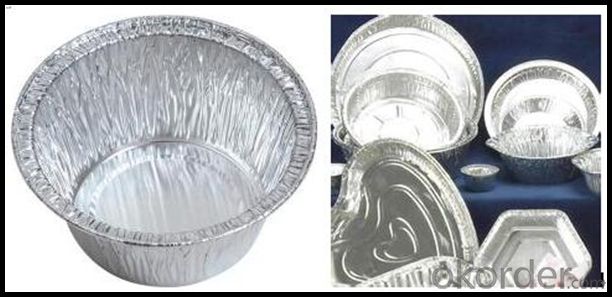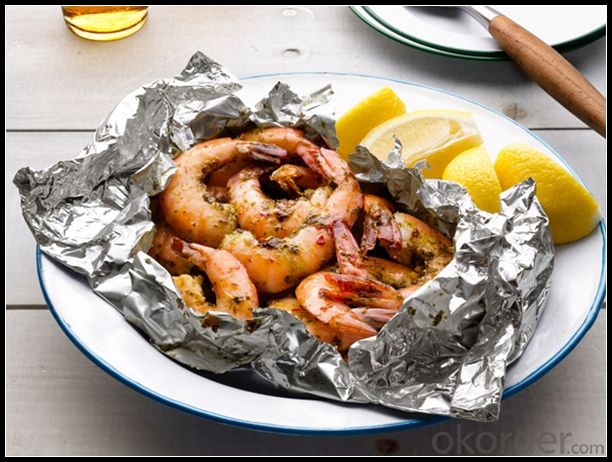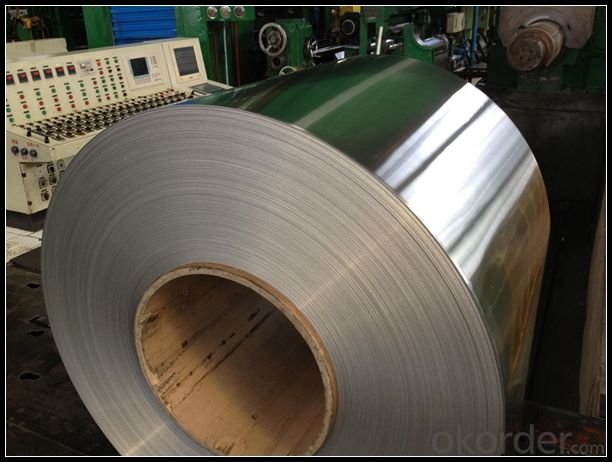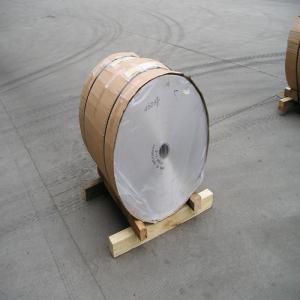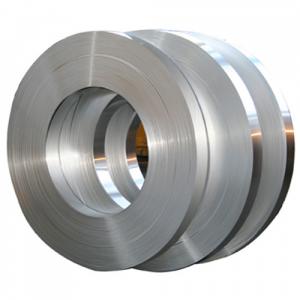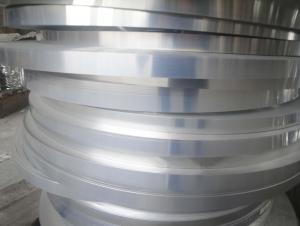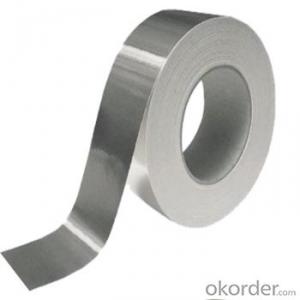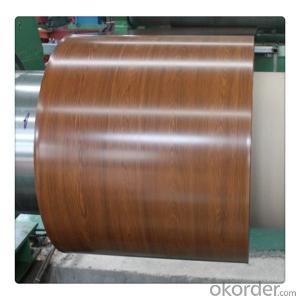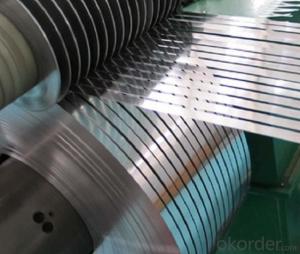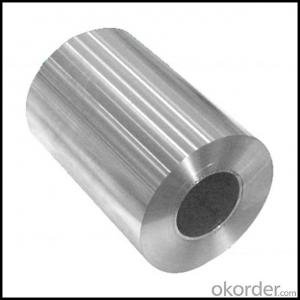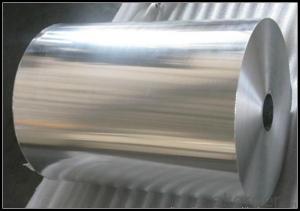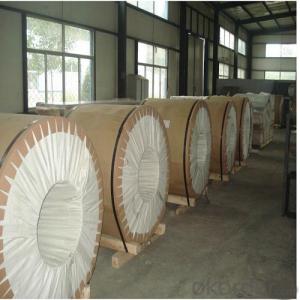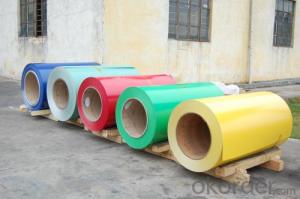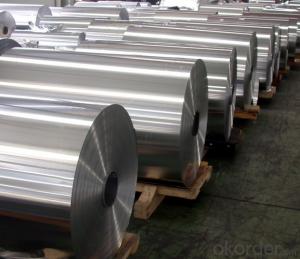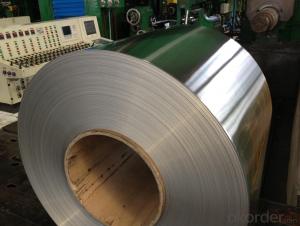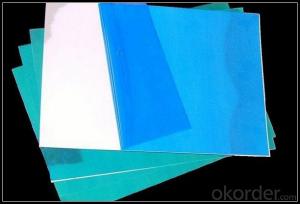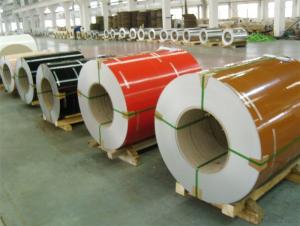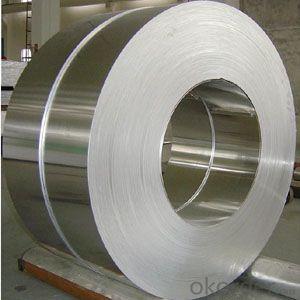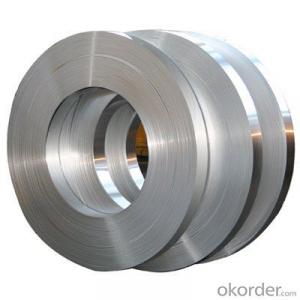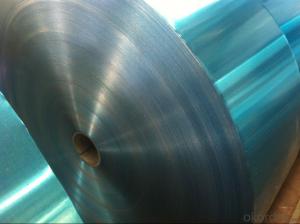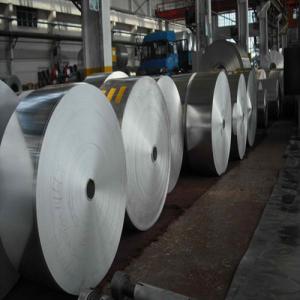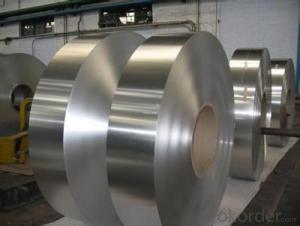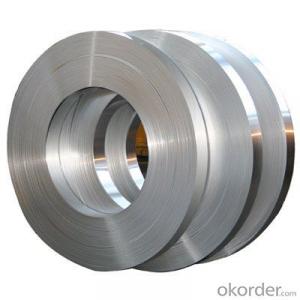Decorative 1/4 Aluminum Strips Coated Coil/Sheet
- Loading Port:
- Tianjin
- Payment Terms:
- TT OR LC
- Min Order Qty:
- 1 m.t.
- Supply Capability:
- 4999 m.t./month
OKorder Service Pledge
OKorder Financial Service
You Might Also Like
Specification
1. Specification of Aluminum
1) Alloy | 1050, 1060,1100, 3003 3004 3105 3005 5005 5052 etc |
2) Temper | O/H12/H14/H1/H18/H32/H34/H36/H38//H111/H112/H116/H321/T6/T651/T3/T351 etc |
3) Thickness | 0.1mm to 6mm |
4) Width | 20mm to 3300mm |
5) Coil weight | 100kgs to 6 tons depends on actual requirement |
6) Core material | Aluminum alloy |
7) Coil Inner diameter | 76mm, 152mm,or as required |
2. Application of Aluminum
(1).Interior: wall cladding, ceilings, bathrooms, kitchens and balconies, shutters, doors...
(2).Exterior: wall cladding, facades, roofing, canopies, tunnels,column covers , renovations...
(3).Advertisement: fascia, shop fronts...
3. Feature of Aluminum
Aluminium foil, even when it is rolled to only 0.007 mm thickness, is still completely impermeable and lets neither light aroma nor taste substances out. Moreover, the metal itself is non-toxic and releases no aroma or taste substances which makes it ideal for packaging sensitive products such as food or pharmaceuticals
4. Certificate:
SGS and ROHS(if client request, paid by client), MTC(plant provided), Certificate of Origin(FORM A, FORM E, CO), Bureau Veritas and SGS (if client request, paid by client), CIQS certificate
5. Image of Aluminum
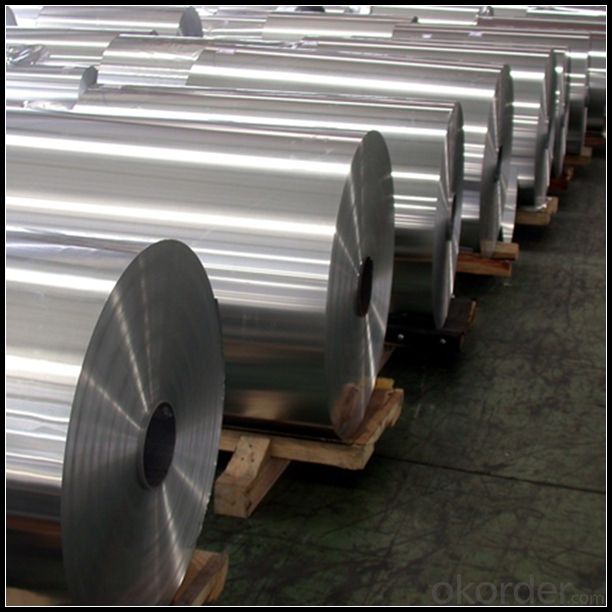
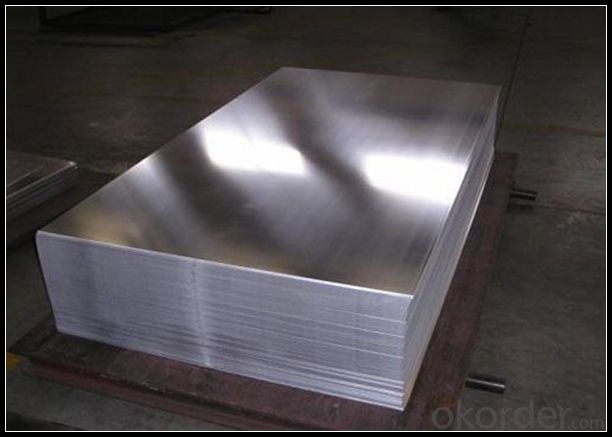
6. Our Service
1. Reply your enquiry in 24 working hours. |
2. OEM, buyer design, buyer label services provided. |
3. Exclusive and unique solution can be provide to our customer by our well traned and professional engineers and staffs. |
4. We can provide free sample for your check |
5. We have the certification of ISO 9001 |
6. Timely delivery |
7. Special discount and protection of sales area provided to our distributor. |
8. Good after-sale service. |
7. FAQ
Q: What is the produce prase? | ||||
A: Normally it would be 40days after received your deposit. | ||||
Q: Can you provide free samples? | ||||
A: Yes, free samples will be sent to you on freight at destination. | ||||
Q: Can I get your latest catalogue? | ||||
A: Yes, it will be sent to you in no time. | ||||
Q: What is the MOQ? | ||||
A: 3 tons | ||||
Q: What are your payment terms? | ||||
A: We accept L/C, D/A, D/P, T/T, West Union,etc. |
- Q: Which is the best aluminum alloy belt?
- Main products: aluminum, automotive, aviation, military board aluminum high-speed train ship plate, aluminum plate, cabinet board, high-end cosmetics cover material, mold piece aluminum pipe insulation board, special high Jingchao flat aluminum (whole plate flatness + 0.22mm), kraft paper, aluminum plate, aluminum plate, moisture-proof super hard Pre Stretch aluminum plate, aluminum plate, aluminum oxide, imported mirror plate, embossed aluminum, aluminum plate, aluminum plate, leveling drawing pattern aluminum and high precision high precision aluminum coil, aluminum strip, aluminum strip ultra narrow, extrusion rods, fine pull rods, Mo Guangbang, tube, seamless tube, aluminum forging, surface profile and other "off the spot wholesale cutting, retail
- Q: This question asks for an explanation of the various types of aluminum cladding materials used in construction.
- <p>Aluminum cladding is a popular choice in construction for its durability and low maintenance. The different types include: 1. Aluminum Composite Material (ACM), which is lightweight and consists of two thin aluminum sheets with a non-aluminum core. 2. Aluminum Plate, a thicker and more rigid material used for structural applications. 3. Aluminum Extrusions, which are formed by pushing aluminum through a die to create specific shapes and profiles. 4. Aluminum Coil Coating, where aluminum coils are coated with a protective layer and used for roofing and siding. 5. Anodized Aluminum, which undergoes an electrochemical process to increase its resistance to wear and corrosion. Each type has specific applications and properties, making them suitable for different construction projects.</p>
- Q: What are the potential dangers or issues that could arise from using adhesive to attach aluminum strips?
- <p>Using adhesive to install aluminum strips can involve certain risks. These include the possibility of the adhesive failing over time, leading to the strips becoming loose or falling off. There's also a risk of the adhesive damaging the surface it's applied to, especially if it's not removed carefully or if it's a sensitive material. Additionally, improper installation can lead to an uneven or unattractive finish. It's important to use a high-quality adhesive suitable for the material and follow the manufacturer's instructions to minimize these risks.</p>
- Q: This question seeks to understand the distinctions between two common metal materials: aluminum strips and steel sheets.
- <p>Aluminum strips and steel sheets differ in material composition, properties, and applications. Aluminum strips are made from aluminum, a lightweight metal known for its corrosion resistance and high thermal conductivity. They are often used in applications requiring light weight and flexibility, such as in electrical wiring or heat exchangers. Steel sheets, on the other hand, are made from steel, which is an alloy of iron and carbon. Steel is stronger and more durable than aluminum, making it suitable for construction, automotive, and heavy machinery. Steel also has higher magnetic permeability and is more resistant to wear. The choice between aluminum strips and steel sheets depends on the specific requirements of the project, such as strength, weight, and environmental conditions.</p>
- Q: This question asks for a comparison between aluminum strips and other roofing materials in terms of their characteristics and performance.
- <p>Aluminum strips are lightweight and highly durable, offering excellent resistance to corrosion and weathering. They are low-maintenance and have a long lifespan, often outlasting other materials like asphalt shingles. Compared to metal roofing, aluminum strips may be more prone to denting, but they are quieter and less likely to expand or contract with temperature changes. When compared to tile or slate, aluminum is much lighter, reducing the load on the structure and installation costs. However, it may not offer the same aesthetic appeal or insulation properties. Overall, aluminum strips are a cost-effective and eco-friendly choice for roofing, especially in areas with harsh weather conditions.</p>
- Q: This question asks for an explanation of the corrosion protection mechanism provided by aluminum strips.
- <p>Aluminum strips protect against corrosion through a process known as sacrificial anode cathodic protection. When aluminum is exposed to an electrolyte (like soil or water), it naturally forms a thin, protective oxide layer on its surface. This layer prevents further oxidation. In a galvanic cell, aluminum acts as the anode and corrodes preferentially, sacrificially protecting the cathode, which is usually a more noble metal like steel. The aluminum strip corrodes instead of the steel, thus preventing the steel from corroding. This method is effective because aluminum is more reactive than steel, and it corrodes at a slower rate once the initial protective layer is formed, making it a sustainable protection method.</p>
- Q: What types of aluminum strip are best suited for cold climate applications?
- <p>Yes, there are specific types of aluminum strip designed for use in cold climates. These include high-strength aluminum alloys such as 7075 and 6061, which maintain their strength and ductility at low temperatures. Additionally, aluminum strips with a special surface treatment or coating can resist corrosion and maintain performance in cold environments. It's crucial to select aluminum strips with good thermal conductivity and low thermal expansion to prevent warping or breaking in extreme cold. Always consult with material specialists to choose the most suitable aluminum strip for your specific cold climate application.</p>
- Q: Is it possible to use aluminum strips as a material for the exterior siding of a building?
- <p>Yes, aluminum strips can be used for exterior siding. They are known for their durability, resistance to weather, and low maintenance requirements. Aluminum siding is lightweight, easy to install, and comes in various styles and colors, making it a popular choice for both residential and commercial buildings. It also has a long lifespan and can be recycled, adding to its environmental benefits. However, it's important to ensure proper installation and choose high-quality materials to maximize its performance and longevity.</p>
- Q: The user is asking if it's possible to use aluminum strips in the construction of solar panels.
- <p>While aluminum is a common material used in the construction of solar panels, particularly for framing and mounting, it is not used to create the actual solar cells. Solar cells are typically made from silicon, which is capable of converting sunlight into electricity. Aluminum strips can be used in the assembly and support structure of solar panels, but they do not contribute to the photovoltaic effect that generates electricity. Therefore, you cannot use aluminum strips to make the active solar cell component of solar panels.</p>
- Q: What safety regulations impact the use of aluminum strips in construction?
- <p>Yes, there are safety regulations that affect the use of aluminum strips in construction projects. These regulations vary by country and region but generally include requirements for material strength, durability, and resistance to corrosion. For instance, aluminum strips must meet specific standards for load-bearing capacity and fire resistance. Compliance with electrical safety standards is also crucial if the strips are used in electrical installations. Additionally, construction codes often dictate the proper use of aluminum strips in structural components, cladding, or as reinforcement. It's essential to consult local building codes and industry standards like the International Building Code (IBC), American Society for Testing and Materials (ASTM) standards, or European Norm (EN) standards to ensure compliance with safety regulations.</p>
Send your message to us
Decorative 1/4 Aluminum Strips Coated Coil/Sheet
- Loading Port:
- Tianjin
- Payment Terms:
- TT OR LC
- Min Order Qty:
- 1 m.t.
- Supply Capability:
- 4999 m.t./month
OKorder Service Pledge
OKorder Financial Service
Similar products
Hot products
Hot Searches
Related keywords
